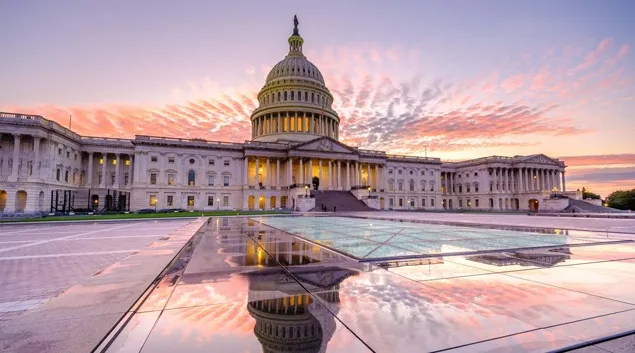
The Congressional Budget Office has said that the One Big Beautiful Bill Act, which was signed into law by President Trump on July 4, will add $3.2 trillion to the national debt over a 10-year span.
That increase in the deficit – which is expected to occur between 2025 and 2034 – is estimated to result from a decrease in direct spending of $1.1 trillion and a decrease in revenues of $4.5 trillion, CBO said.
Some of those budgetary effects are associated with programs that are classified as off-budget, though the increase in the on-budget deficit over that period is still estimated at $3.4 trillion, according to CBO.
WHAT’S THE IMPACT
The Big Beautiful Bill was passed by the Senate earlier this month after Vice President JD Vance broke a 50-50 tie. The three Republicans opposing the bill were Sens. Thom Tillis of North Carolina, Susan Collins of Maine and Sen. Rand Paul of Kentucky, according to AP.
Prior analysis from the CBO shows that the act cuts $930 billion from Medicaid. The cuts come from enrollment losses due to new work requirements, twice yearly eligibility verification for beneficiaries in Medicaid expansion states and cuts to provider taxes, also in Medicaid expansion states.
The Act also reduces the maximum allowable provider tax rate from 6% to 3.5% over time. States tax hospitals and then put the money into their Medicaid programs, which gains more federal dollars. For every dollar that states spend on Medicaid, they get $1 to $3 from the federal government, according to The Wall Street Journal. The money is then returned to hospitals in Medicaid payments, with hospitals getting more than what they paid in provider taxes.
The American Hospital Association has voiced opposition to cuts to provider taxes. Many hospitals, especially those in rural areas, rely heavily on Medicaid funding, and an additional 55 rural hospitals are at risk of closure should Medicaid cuts pass, according to Families USA.
Also included was a telehealth provision that makes virtual care services permanent, according to ATA Action, the advocacy arm of the American Telemedicine Association. The provision makes permanent first-dollar coverage for High-Deductible Health Plan-Health Savings Accounts (HDHP-HSAs).
An amendment added by Republicans reduces Medicaid spending by another $313 billion by limiting the expansion of Medicaid under the Affordable Care Act. The amendment prevents new enrollees in Medicaid expansion states from receiving the 9-to-1 enhanced Federal Medical Assistance Percentage (FMAP) if they are able-bodied and don't have dependent children, according to The Hill.
THE LARGER TREND
Last week, Senator Josh Hawley, R-Mo., introduced legislation that would effectively reverse some of the biggest cuts to Medicaid funding that are set to take place under the One Big Beautiful Bill Act.
Hawley’s new bill, the Protect Medicaid and Rural Hospitals Act, would double the federal investment in rural health care while reversing future changes to Medicaid hospital funding.
Email: jlagasse@himss.org
Healthcare Finance News is a HIMSS Media publication.